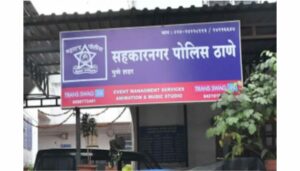Jammu & Kashmir Shines Bright: Abrogation Of Article 370 Ushers In An Era Of Empowerment And Development

Srishti Singh
Jammu And Kashmir, 6th August 2023: In the past, Jammu & Kashmir faced numerous administrative complexities, bureaucratic hurdles, and limited access to development initiatives due to its special status. However, since the abrogation of Article 370 by the Narendra Modi government in 2019, a new era of empowerment and development has dawned upon the people of the erstwhile state.
One significant initiative that has made a tremendous impact is the implementation of the Ayushman Bharat Jan Arogya Yojana. This scheme has enabled over 82.3 lakh registered beneficiaries to access quality healthcare services, which were previously restricted. Ayushman Bharat Jan Arogya Yojana is the world’s largest health assurance scheme, aiming to provide a health cover of Rs 5 lakh per family per year for secondary and tertiary care hospitalization to over 12 crore poor and vulnerable families, benefitting approximately 55 crore individuals representing the bottom 40 per cent of the Indian population.
The Jal Jeevan Mission has revolutionized the region’s water supply by providing safe drinking water. It has delivered tap connections to 12.6 lakh households, and the scheme is set to provide individual household tap connections to all rural households in India by 2024.
Under the Jal Jeevan Mission, the remaining rural households in Jammu & Kashmir are expected to receive tap water connections by June of this year. The Modi administration has earmarked a significant amount of Rs 9,289.15 crore for the Union Territory as part of the Jal Jeevan Mission 2022-23. This allocation represents a considerable increase compared to the previous funding.
The Pradhan Mantri Awas Yojana (PMAY) has been instrumental in completing 1.7 lakh houses under PMAY (Rural) and 21,652 dwelling units under PMAY (Urban). The Jammu and Kashmir Lieutenant Governor’s administration has approved a proposal to allot 5 marlas (.031 acre) of land each to landless families in the union territory under PMAY-Gramin, bringing new hope and opportunities for thousands of landless families.
The Bhartiya Jan Aushadhi Pariyojana has played a vital role in reducing healthcare expenses as it made generic medicines readily available through 226 Jan Aushadhi Kendras. The number of Jan Aushadhi Kendras in Jammu & Kashmir has increased to a record 227, providing affordable quality medicines to the people.
The successful implementation of PM Jan Dhan Yojana has boosted financial inclusion. The initiation of 2.65 million bank accounts, with a notable proportion being owned by women, has broadened the reach of formal banking services, granting individuals the opportunity to save money and access credit facilities.
In the realm of agriculture, the PM-KISAN and PM Mudra Yojana have assumed crucial roles. The PM-KISAN initiative extends direct financial assistance of Rs 6,000 to farmers, while the Mudra Yojana facilitates loans of up to Rs 10 lakh for small and micro enterprises that are non-corporate and non-farming.
Moreover, the scrapping of special status has paved the way for fast-tracking infrastructure projects in Jammu and Kashmir, leading to significant milestones like the completion of the world’s highest railway bridge, the Chenab Bridge, and the world’s longest single-tube highway tunnel, the Atal Tunnel.
In Ladakh, development has also been remarkable. Ayushman Bharat has provided healthcare to 1.3 lakh beneficiaries, Jal Jeevan Mission has installed 33,495 household tap connections, and PMAY (Rural & Urban) has completed 1429 houses and 666 dwelling units, ensuring decent housing. The Bharatiya Jan Aushadhi Pariyojana provided cost-effective medicines valued at Rs 106.5 crore. Under the PM Jan Dhan Yojana, 21,908 bank accounts were opened, with 55 per cent of them belonging to women. Meanwhile, the PM KISAN initiative allocated Rs 36 crore to offer assistance to farmers, and PM Mudra Yojana sanctioned Rs 960 crore to support entrepreneurs.
With a yearly budget of Rs 1.18 lakh crore, significant advancements have been achieved in Jammu & Kashmir and Ladakh, with 53 mega projects worth Rs 58,477 crore. Out of these projects, 32 have already been completed, while nine projects amounting to Rs 21,441 crore are currently in progress in Ladakh.








